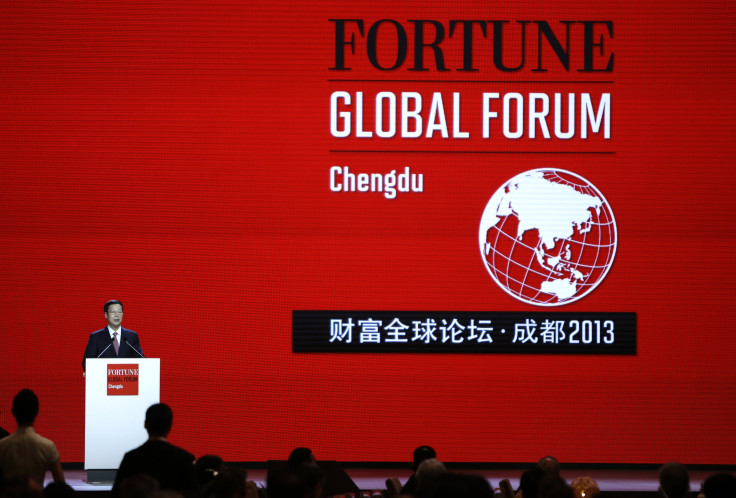Chinese Authorities Allow Attendants Of Global Forum In Chengdu Access To Twitter And Facebook
Is the Great Firewall of China slowly coming down? The government has made a few exceptions to its vigilant censorship of the press and Internet usage in the past few years -- some blocked websites were made available during the 2008 Beijing Olympics. And this week saw another crack in the wall when organizers of the Fortune Global Forum in Chengdu gave attendees access to Facebook and Twitter during the business leadership conference.

The forum organizers created a hashtag for Twitter, allowing users to follow updates, according to Quartz. Splatter China, a youth-oriented communications agency, tweeted excitedly: “Follow #FortuneGlobal for live tweets (!) and updates from the Fortune Global Forum 2013, featuring VPN-less access to Twitter and Facebook,” referring to the virtual private network technology that some determined netizens in China have used to access blocked websites.
Unfortunately for the rest of China’s 560 million Internet users, access to Twitter and Facebook was granted only to the forum’s approved guests at the hotel hosting the event.
It's a smart move as China’s own microblogging site Weibo has a very limited user base outside China, and the city of Chengdu saw the forum as a way to promote its fast-growing economy. Freeing up the Internet temporarily for journalists ensured that the rest of the world would hear about Chengdu and the event.
Previously, Chinese authorities made some websites available, such as the BBC’s Chinese-language website, during the 2008 Beijing Olympics.
The strategy may become more common in the future if authorities come to consider the temporary relaxation beneficial. The city of Nanjing is considering the tactic for the Asian Youth Games it will host this August, Quartz reported.
© Copyright IBTimes 2024. All rights reserved.





















